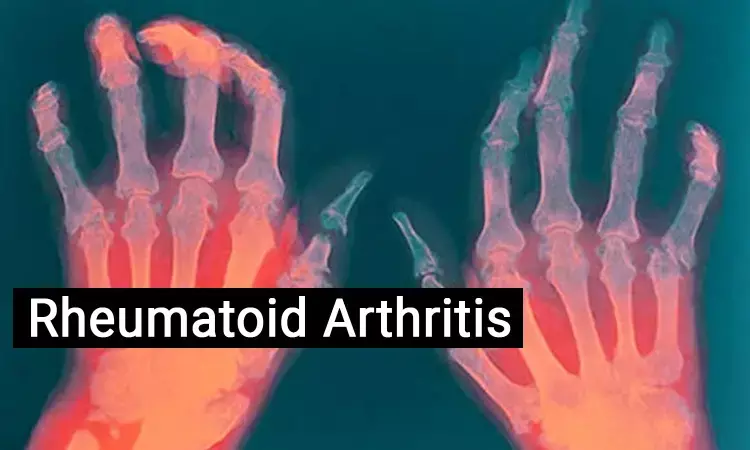- Home
- Medical news & Guidelines
- Anesthesiology
- Cardiology and CTVS
- Critical Care
- Dentistry
- Dermatology
- Diabetes and Endocrinology
- ENT
- Gastroenterology
- Medicine
- Nephrology
- Neurology
- Obstretics-Gynaecology
- Oncology
- Ophthalmology
- Orthopaedics
- Pediatrics-Neonatology
- Psychiatry
- Pulmonology
- Radiology
- Surgery
- Urology
- Laboratory Medicine
- Diet
- Nursing
- Paramedical
- Physiotherapy
- Health news
- Fact Check
- Bone Health Fact Check
- Brain Health Fact Check
- Cancer Related Fact Check
- Child Care Fact Check
- Dental and oral health fact check
- Diabetes and metabolic health fact check
- Diet and Nutrition Fact Check
- Eye and ENT Care Fact Check
- Fitness fact check
- Gut health fact check
- Heart health fact check
- Kidney health fact check
- Medical education fact check
- Men's health fact check
- Respiratory fact check
- Skin and hair care fact check
- Vaccine and Immunization fact check
- Women's health fact check
- AYUSH
- State News
- Andaman and Nicobar Islands
- Andhra Pradesh
- Arunachal Pradesh
- Assam
- Bihar
- Chandigarh
- Chattisgarh
- Dadra and Nagar Haveli
- Daman and Diu
- Delhi
- Goa
- Gujarat
- Haryana
- Himachal Pradesh
- Jammu & Kashmir
- Jharkhand
- Karnataka
- Kerala
- Ladakh
- Lakshadweep
- Madhya Pradesh
- Maharashtra
- Manipur
- Meghalaya
- Mizoram
- Nagaland
- Odisha
- Puducherry
- Punjab
- Rajasthan
- Sikkim
- Tamil Nadu
- Telangana
- Tripura
- Uttar Pradesh
- Uttrakhand
- West Bengal
- Medical Education
- Industry
Baricitinib halts Joint Damage Progression in RA patients, Finds study

Researchers from the Leeds Institute of Rheumatic and Musculoskeletal Medicine, University of Leeds, UK have recently found out that baricitinib 4 mg once daily inhibits radiographic joint damage progression in patients with moderate-to-severe RA, as published in the Journal of Arthritis Research and Therapy.
Baricitinib is an oral selective inhibitor of Janus kinase (JAK)1 and JAK2 that has proved effective and well tolerated in the treatment of rheumatoid arthritis (RA) in an extensive programme of clinical studies of patients with moderate-to-severe disease.
Hence, Paul Emery and associates conducted a phase 2b dose-ranging study of baricitinib in combination with traditional disease-modifying antirheumatic drugs (DMARDs) in RA patients.
Magnetic resonance imaging showed that baricitinib 2 mg or 4 mg once daily provided dose-dependent suppression of synovitis, osteitis, erosion and cartilage loss at weeks 12 and 24 versus placebo. These findings correlated with clinical outcomes and were confirmed in three phase 3 studies (RA-BEGIN, RA-BEAM and RA-BUILD) using X-rays to assess structural joint damage.
The following results were seen-
a. In patients naïve to DMARDs (RA-BEGIN study), baricitinib 4 mg once daily as monotherapy or combined with methotrexate produced smaller mean changes in structural joint damage than methotrexate monotherapy at week 24.
b. Differences versus methotrexate were statistically significant for combined therapy.
c. In patients responding inadequately to methotrexate (RA-BEAM study), baricitinib 4 mg plus background methotrexate significantly inhibited structural joint damage at week 24 versus placebo, and the results were comparable to those observed with adalimumab plus background methotrexate.
d. In patients responding inadequately to conventional synthetic DMARDs (csDMARDs; RA-BUILD study), baricitinib 4 mg again significantly inhibited radiographic progression compared with placebo at week 24.
e. Benefits were also observed with baricitinib 2 mg once daily, but the effects of baricitinib 4 mg were more robust.
f. The positive effects of baricitinib 4 mg on radiographic progression continued over 1 and 2 years in the long-term extension study RA-BEYOND, with similar effects to adalimumab and significantly greater effects than placebo.
Findings from the phase 3 studies of patients with RA were supported by preclinical studies, which showed that baricitinib has an osteoprotective effect, increasing mineralisation in bone-forming cells.
Therefore, the authors concluded that "baricitinib 4 mg once daily inhibits radiographic joint damage progression in patients with moderate-to-severe RA who are naïve to DMARDs or respond inadequately to csDMARDs, including methotrexate, and the beneficial effects are similar to those observed with adalimumab."
Dr. Nandita Mohan is a practicing pediatric dentist with more than 5 years of clinical work experience. Along with this, she is equally interested in keeping herself up to date about the latest developments in the field of medicine and dentistry which is the driving force for her to be in association with Medical Dialogues. She also has her name attached with many publications; both national and international. She has pursued her BDS from Rajiv Gandhi University of Health Sciences, Bangalore and later went to enter her dream specialty (MDS) in the Department of Pedodontics and Preventive Dentistry from Pt. B.D. Sharma University of Health Sciences. Through all the years of experience, her core interest in learning something new has never stopped. She can be contacted at editorial@medicaldialogues.in. Contact no. 011-43720751
Dr Kamal Kant Kohli-MBBS, DTCD- a chest specialist with more than 30 years of practice and a flair for writing clinical articles, Dr Kamal Kant Kohli joined Medical Dialogues as a Chief Editor of Medical News. Besides writing articles, as an editor, he proofreads and verifies all the medical content published on Medical Dialogues including those coming from journals, studies,medical conferences,guidelines etc. Email: drkohli@medicaldialogues.in. Contact no. 011-43720751


